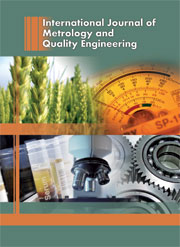No CrossRef data available.
Article contents
PROCORAD’s international proficiency testing for radio-bioassays
Published online by Cambridge University Press: 17 December 2010
Abstract
In France, the Clinical Biochemistry Laboratories (CBL) are in charge of the monitoring of nuclear workers. These laboratories must be accredited and have ministerial certification. The accreditation of radiobioassay analyses requires notably Proficiency Testing (PT) between laboratories. One of the most important PT providers, in this field, is the PROCORAD association. The specifics are to provide real biological samples spiked with various radionuclides and to send them around international CBL. The results obtained by the all laboratories are both statistically and anonymously exploited, thanks to homemade software entitled Procostat. PROCORAD PT’s program answers to a definite demand from laboratories in charge of monitoring workers, for some years more than 70 participants from all over the world have signed up to participate in these comparison exercises. Apart from an assessment of the different laboratories performance, the comparison exercises organized by the PROCORAD’s association enable the Clinical Biochemistry Laboratories to evaluate the techniques implemented in terms of accuracy, reproducibility and specificity.
- Type
- Research Article
- Information
- International Journal of Metrology and Quality Engineering , Volume 1 , Issue 2 , 2010 , pp. 99 - 103
- Copyright
- © EDP Sciences 2010




